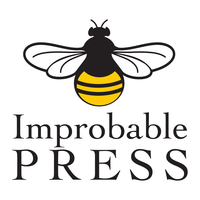
Oh the boons of age! You've learned Some Things. You do fewer Unwise Things.
This means you can maybe say, "Hey, dear writing friend! What you just did in front of me and my sandwich? It's Unwise! I used to do it and suggest you don't!"
The thing I'm talking about, the unwise thing, is asking editors to tell you why they rejected your work.
Why Your Story Was Rejected: 2 Reasons an Editor Won't Tell You
I know it doesn't feel great not knowing. Yet as a working editor I also know there's at least two good reason we don't want to tell you why a story was rejected:
* We don't have time.
Editors read a lot. Hundreds of short stories. Dozens of books. And most of these submissions are read in their off time. Editors read a double dozen short stories on the weekend. They take a few book manuscripts with them on holiday.
So when they know a story doesn't fit what they need, most politely reject it and move on to the next one. They simply can't offer details to everyone about everything.
And even if they could, they might not want to do so for another reason:
* Writers get hurt.
Writers often don't respond well to learning that their story, for example, didn't provide two vital things the guidelines asked for. Instead they may reply, "But I gave you a third one!"
This implies a demand for even more justifying details and more of the editor's time when maybe, just maybe, the full answer they're trying to avoid is saying this: we got much better stories.
Of course great stories get rejected too. Maybe we already have something just like your tale, or perhaps it's not the genre we publish.
There are a lot of reasons a story is rejected, and often an editor will tell you, if they've personally requested your work. If they do, that's a kindness so please thank them. And know most editors don't enjoy rejecting people, so when you ask for details, they're no happier answering than you are in hearing the answer.
In the meantime, if you're rejected without details, by all means reply "Thank you for your time," and then turn around and send your tale to another suitable market. As writers it's the job we've all signed on for, and while it's hard, if we keep working at it…it works.
Now good luck to you, you Wise Thing.
(P.S. Please read James' comment down below, it takes a look at this from the other side – acceptance!)

I think there’s an unspoken corollary here that should be… well… spoken. It’s “Don’t ask why you were accepted.” I learned this in acting school, but the reason you don’t want to ask is because the answer might not be flattering.
For example, what if you find out you WEREN’T the first choice for that slot? You were the backup for somebody who was better, but dropped out. Not the high praise you might’ve expected.
Bottom line: don’t overthink rejections OR acceptances. Move on from the former, savour the latter, dwell on neither.